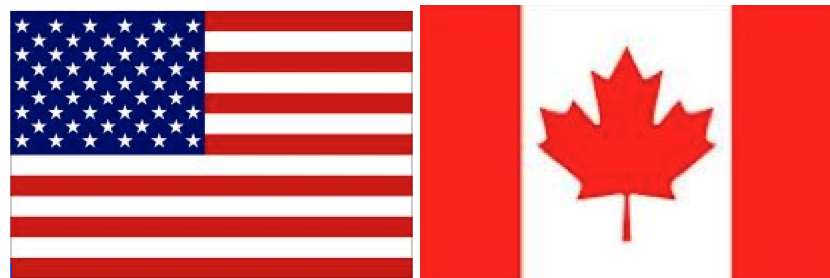During an official visit to the US, Canadian Prime Minister Justin Trudeau and US President Barack Obama released a US-Canada Joint Statement on Climate, Energy and Arctic Leadership pledging to sign the Paris Agreement as soon as it opens for signature on 22 April 2016 and to advance climate action globally, outlining coordinated domestic climate action, and announcing cooperation on clean energy and the Arctic.
 10 March 2016: During an official visit to the US, Canadian Prime Minister Justin Trudeau and US President Barack Obama released a US-Canada Joint Statement on Climate, Energy and Arctic Leadership, pledging to sign the Paris Agreement as soon as possible. The two leaders commit to advance climate action globally, outlining coordinated domestic climate action, and announce cooperation on clean energy and the Arctic.
10 March 2016: During an official visit to the US, Canadian Prime Minister Justin Trudeau and US President Barack Obama released a US-Canada Joint Statement on Climate, Energy and Arctic Leadership, pledging to sign the Paris Agreement as soon as possible. The two leaders commit to advance climate action globally, outlining coordinated domestic climate action, and announce cooperation on clean energy and the Arctic.
In the Joint Statement, the US and Canada also commit to: complete mid-century long-term low greenhouse gas (GHG) emission development strategies; assist developing countries in implementing their intended nationally-determined contributions (INDCs) and in strengthening their adaptation planning and action; promote the implementation of the enhanced transparency framework under the Paris Agreement, including through support for the Capacity-building Initiative for Transparency designed to enhance institutional and technical capacity to meet transparency requirements; and support the implementation of “carbon markets-related” provisions of the Paris Agreement.
Domestically, the two countries commit to reduce methane emissions by 40-45% below 2012 levels by 2025, to which end they pledge to, inter alia, regulate existing sources of methane emissions in the oil and gas sector and collaborate on federal measures to reduce methane emissions. Methane is a powerful short lived climate pollutant (SLCP), which is at least 84 times more potent than carbon dioxide (CO2) in the atmosphere over a 20-year time horizon.
Globally, the US and Canada affirm their commitment to regulate high global warming potential hydrofluorocarbons (HFCs) by adopting HFC phasedown amendment to the Montreal Protocol on Substances that Deplete the Ozone Layer (MP) in 2016. Proposals to bring HFCs under the MP have been considered by Parties to the Protocol since 2009 but no agreement has been reached.
They further commit to work through the International Civil Aviation Organization (ICAO) to reduce emissions from international aviation by: fostering technological and operational advancements; implementing the new carbon standard for airplanes; and adopting, in 2016, a carbon offset measure that will allow for international civil aviation carbon-neutral growth. Currently, international aviation is one of the fastest growing emissions sources at the global level, and its share is projected to rise by 10-32% by 2050.
On energy, the two leaders pledge to enhance efforts in: facilitating the integration of renewables on the countries’ interconnected grids; aligning energy efficiency standards and expanding shared labeling programmes; accelerating clean energy and clean technology innovation; advancing global efforts to accelerate clean energy; and developing a joint US-Canadian strategy for strengthening the security and resilience of the North American electricity grid.
On the Arctic, the US and Canada outline four objectives: conserving Arctic biodiversity through science-based decision making, including the national goals of protecting at least 17% of land areas and 10% of marine areas by 2020; incorporating indigenous science and traditional knowledge into decision making; building a sustainable Arctic economy by ensuring low-impact shipping corridors, abundant Arctic fish and a science-based approach to oil and gas; and supporting strong Arctic communities. [US-Canada Joint Statement on Climate, Energy and Arctic Leadership: White House Press Release] [US-Canada Joint Statement on Climate, Energy and Arctic Leadership: Prime Minister of Canada Justin Trudeau Press Release] [US-Canada Relationship: White House Factsheet] [Remarks by President Obama and Prime Minister Trudeau of Canada in Joint Press Conference] [Remarks at the State Luncheon in Honor of Canadian Prime Minister Justin Trudeau] [UNFCCC Decision Adopting the Paris Agreement] [UNFCCC Statement Paris Agreement: Next Steps] [Climate & Clean Air Coalition Oil & Gas Methane Partnership Webpage] [Ozone Secretariat Website] [IISD RS Policy Update on Emissions from International Transport]